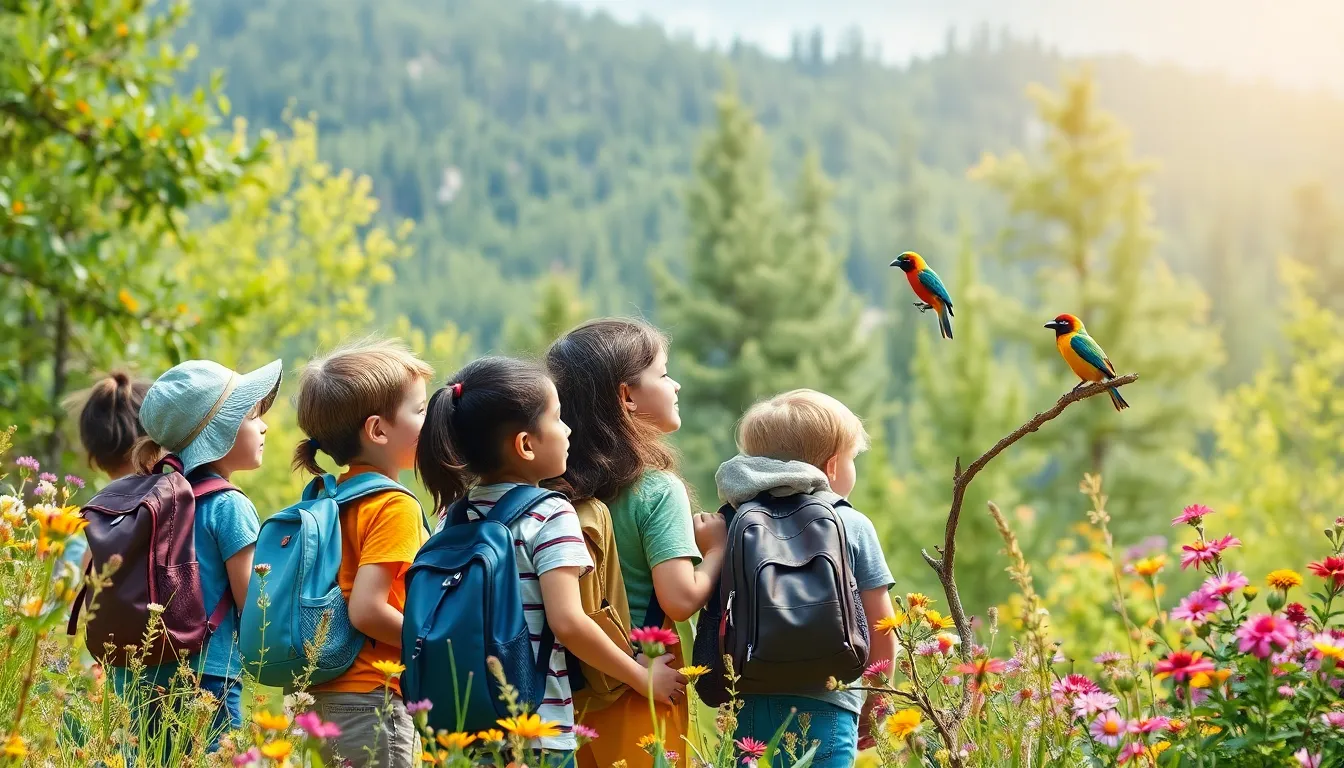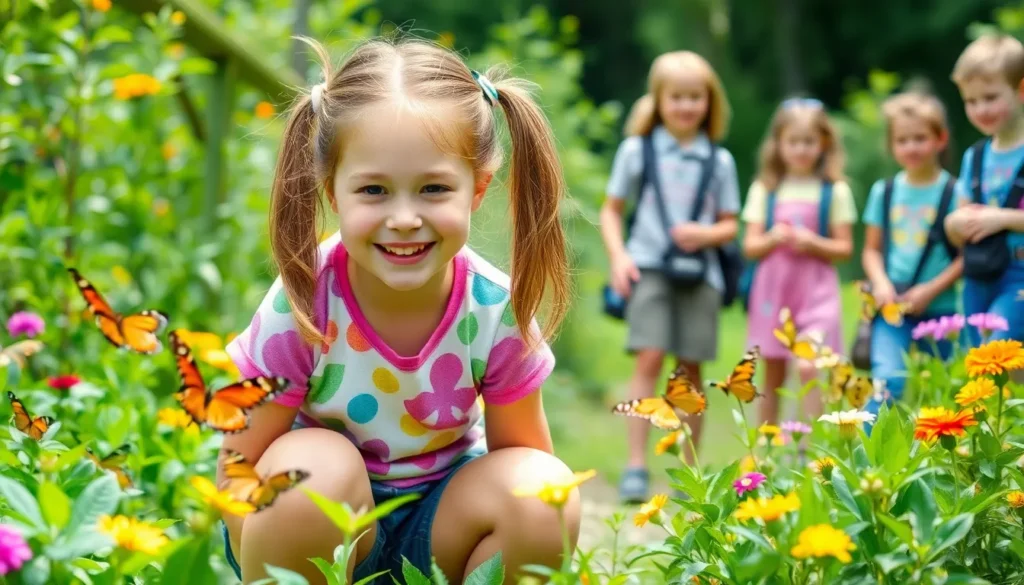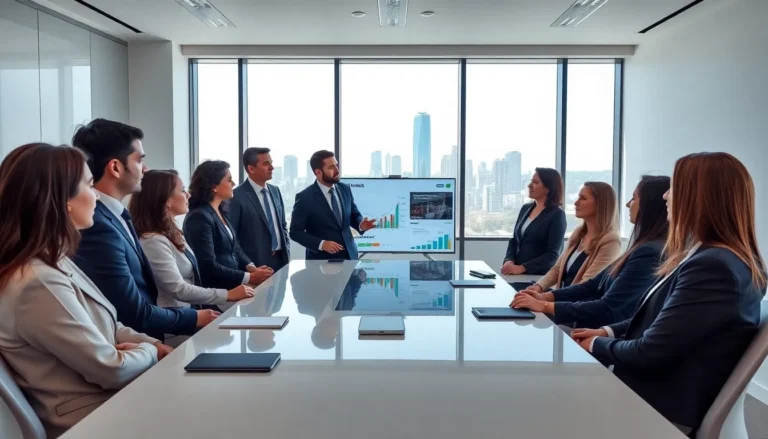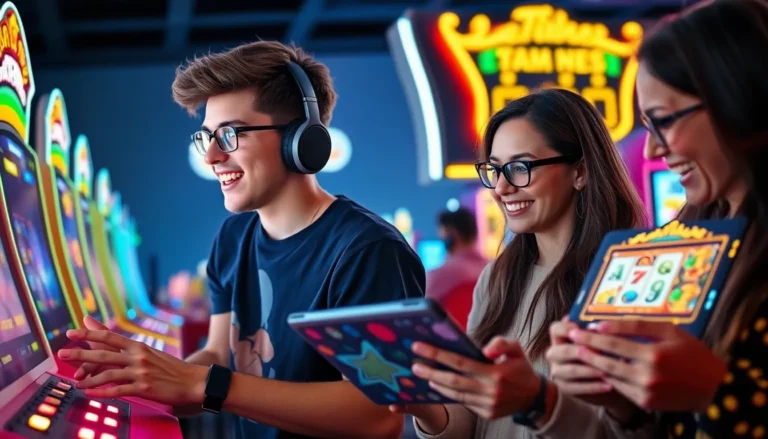Table of Contents
ToggleImagine a world where learning isn’t confined to a classroom but unfolds in vibrant parks, fascinating museums, and even bustling farms. Learning trips for kids turn the mundane into the magical, transforming curious minds into explorers eager to soak up knowledge like a sponge in a puddle. These adventures don’t just teach facts; they ignite imaginations and create memories that last a lifetime.
Benefits Of Learning Trips For Kids
Learning trips offer invaluable benefits for children, enriching their educational experience outside traditional settings. They encourage exploration and provide hands-on experiences.
Educational Value
Educational trips engage kids with real-world applications of subjects. They provide direct encounters with history in museums or science in nature, making lessons memorable. Knowledge acquisition takes on a new dimension when kids interact directly with artifacts or observe ecosystems. Such experiences enhance understanding and retention of information. For example, visiting a historical site can instill a sense of time and context that textbooks can’t match. Kids often relate better to learning when it’s hands-on, reinforcing concepts through observation and participation.
Social Interaction
Social interaction flourishes during learning trips. Kids work together on projects or activities, fostering teamwork and communication skills. Group dynamics encourage sharing perspectives and building friendships. As they engage with peers in different environments, they develop empathy and respect for diverse viewpoints. Participating in guided tours or cooperative tasks helps enhance social skills and confidence. Children also learn to navigate group settings, balancing leadership and cooperation effectively. Overall, these trips nurture lifelong interpersonal skills that extend beyond the classroom.
Types Of Learning Trips

Learning trips come in various forms, each offering unique educational experiences for children. Different environments provide opportunities to explore and learn outside traditional classrooms.
Nature Excursions
Nature excursions immerse children in the beauty of the outdoors. These trips enable kids to observe plants, wildlife, and ecosystems firsthand. For instance, a visit to a national park allows exploration of diverse habitats, enhancing understanding of biology. Kids learn about ecosystems, environmental conservation, and the importance of biodiversity through direct interaction with nature. Additionally, outdoor activities like hiking or bird watching engage them physically and mentally, fostering a connection to the environment.
Cultural Visits
Cultural visits enrich children’s understanding of different societies. Museums, art galleries, and cultural festivals offer insights into various traditions and histories. A trip to an art museum allows exploration of famous works, stimulating creativity and appreciation for the arts. Through participation in local cultural events, children experience dance, music, and culinary traditions, building respect for diversity. Engaging with other cultures broadens their perspectives, encouraging empathy and awareness in an increasingly interconnected world.
Historical Sites
Historical sites provide a tangible link to the past, allowing children to step back in time. Visiting landmarks like battlefields or ancient ruins teaches them about historical events and figures. Learning experiences become personal when children walk through history, making subjects like social studies more relatable. Guided tours often enhance understanding, as experts share stories and context about events. Encountering history in person fosters a deeper appreciation for heritage, ensuring that lessons learned extend beyond textbooks.
Planning A Learning Trip
Planning a learning trip involves careful consideration of educational objectives and destination selection. Each decision shapes the experience to enhance children’s knowledge and engagement.
Setting Educational Goals
Establishing clear educational goals sets the foundation for a successful learning trip. Define what subjects to address, whether science, history, or art. Ensure objectives relate to current curricula for maximum relevance. Consider the age and interests of children to foster excitement. Incorporating specific outcomes keeps the trip focused and purposeful. Identify desired skills, such as teamwork or problem-solving, to develop critical thinking. Setting these goals provides a roadmap that guides activities and reinforces concepts through practical exploration and discovery.
Choosing The Right Destination
Selecting an appropriate destination plays a key role in the effectiveness of the learning experience. Evaluate locations that align with educational goals, like museums, parks, or historical sites. Look for venues that offer interactive exhibits to actively engage children. Ensure destinations provide age-appropriate content and learning opportunities. Research accessibility and facilities, ensuring comfort and convenience for all participants. Prioritize destinations that foster curiosity and provoke questions. An engaging location enhances the learning journey and leaves lasting impressions on young explorers.
Tips For An Engaging Experience
Creating an engaging learning experience for kids during trips involves thoughtful preparation and active participation. Ensuring kids feel involved enhances their excitement and interest.
Involving Kids In The Planning
Involving kids in the planning process encourages ownership over the trip. Let them research destinations, picking places they find intriguing. Gathering opinions on activities generates anticipation and excitement. Asking for their input on what to see or learn fosters engagement and deeper connections to the experience. During planning, encourage kids to identify specific educational goals tied to their interests. This approach makes the trip more relevant and meaningful to them.
Making It Interactive
Interactivity transforms learning trips into memorable adventures. Incorporating hands-on activities, like scavenger hunts or guided discovery, enhances engagement. Organizing group discussions about observations encourages critical thinking and collaboration. Presenting questions related to the destination prompts curiosity and deeper exploration of topics. Instead of traditional lectures, utilize storytelling techniques to capture children’s attention. Facilitating interactive workshops, where children can create art or conduct experiments, solidifies knowledge through practical experience.
Learning trips are a powerful way to enrich children’s education beyond the confines of a classroom. They ignite curiosity and foster a love for exploration while providing hands-on experiences that deepen understanding. By engaging with the world around them through nature excursions, cultural visits, and historical sites, kids not only learn but also develop essential social skills.
With thoughtful planning and active participation, these trips become memorable adventures that resonate long after the journey ends. As children explore new environments and connect with diverse cultures, they build a foundation for lifelong learning and personal growth. Embracing learning trips can transform education into an exciting journey that shapes young minds for the future.




